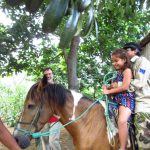How much do we understand about the importance of biodiversity? The answer, it seems, is very little. We cannot plant a bunch of mango trees and call it a forest…..acres upon acres of teak trees is a plantation, a monoculture crop not a forest. A forest is one of several eco systems (meadow lands, coral reefs are others) that make up the planet, each supporting a massive diversity of life. Even though human life is dependent on this diversity, we do not, apparently, think biodiversity is worth preserving. Each day around 100 species become extinct. Matthew Schneider-Mayerson argues in “Extinction : A Radical History” we are in the midst of the sixth mass extinction in the history of the planet, in which 25 to 40 percent of all species are expected to disappear by 2050. Because extinction is generally a silent, invisible process, we are rarely forced to confront its inherent tragedy and the potentially vast ecological ripples of even a single species’ eradication”.
This silent but deadly process ought to be scaring us into taking action. Consider the case of bees, whose path to extinction is being relatively well documented though there is still debate over the cause – possible offenders include pesticide poisoning and malnutrition. Microwaves from radio towers could also be destroying their ability to navigate. Their disappearance would be a direct hit to the human race as nearly all fruit and most vegetable species (ie much of what we eat) owe their pollination to insects; mostly bees. What will happen without them?
Such processes are interwoven with other parts of the jigsaw of factors destroying the planet – a jigsaw that is very much in evidence in this area around La Concha. Continued deforestation and land clearance for monoculture crops such as pineapple and pitaya have led to the virtual disappearance of plants that provide food for the bees. One, the beautiful abejon (which actually means “big bee” – see photos above) has virtually disappeared from fields and hedgerows. 10 years ago they were plentiful…now hardly to be found, along with most other wild flowers. The variety of garden flowers which used to help nourish bees and other vital insects has been replaced almost uniformly with plants providing instant color, such as bougainvillea, and don’t take too much work to grow. However, they are utterly useless as a source of bee food.
You can take any species virtually at random and just the quickest internet research will give you the same story (except for the scavengers – vultures, cockroaches, rats – they are doing very nicely, thanks to us!). Over and over again. Take frogs as another example – almost one third of the world’s amphibian species are threatened with extinction. This not normal – 200 species have gone since 1980 – pollution, disease, habitat loss and so on. I recently found a mutant frog with a large lump growing on its back. In this area I am sure that highly toxic fumigations carried out to control mosquitoes are at least partly to blame. And the sad irony of course is that the noxious gas kills many natural predators, including the frogs, whilst mosquitoes seem to be becoming resistant!

So what are we doing at La Mariposa? We plant the widest possible range of trees and plants with minimum bougainvillea!, always taking into account which birds, animals, insects will any given plant help survive. We use almost 100% organic methods to grow our veggies. We dig ponds to help frogs in their fight for existence – frogs, lizards, spiders and bats are particularly welcome at La Mariposa as voracious mosquito eaters. We are also planning to hold an Environmental Fair in June – a mix of educational stalls, tours around the vegetable patch, veggie food and herbal teas for folk to try, competitions…..one of our ideas is to hold a competition for the best bee and butterfly (also good pollinators) friendly garden, offering a substantial prize for the winner.
But I often feel we are just hanging on by our finger tips, as I notice another hedgerow plant or type of wild flower seems to have completely disappeared, I hear yet another chainsaw hacking yet another tree to pieces…….to quote Schneider-Mayerson again “conservation efforts have widespread support and can boast a few modest (and temporary) victories, they have been overwhelmed by the ongoing wave of anthropogenic annihilation”. That about sums it up….but nonetheless we shall keep going in the hope that others join us and we can save at least a few species!



I wish people traveled and were keen about everything in the destination including the biodiversity 🙂 Yesterday I wrote about some of my thoughts on something similar – traveling for the sake of it and not for any tag 🙂